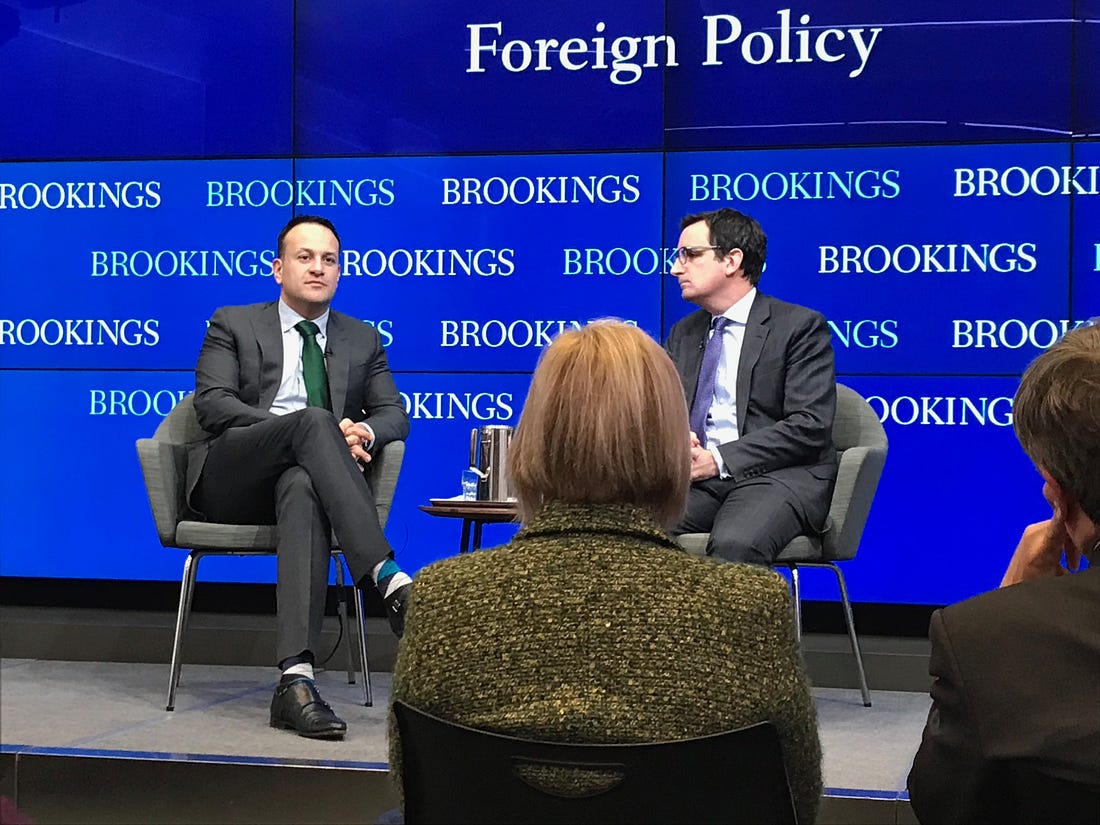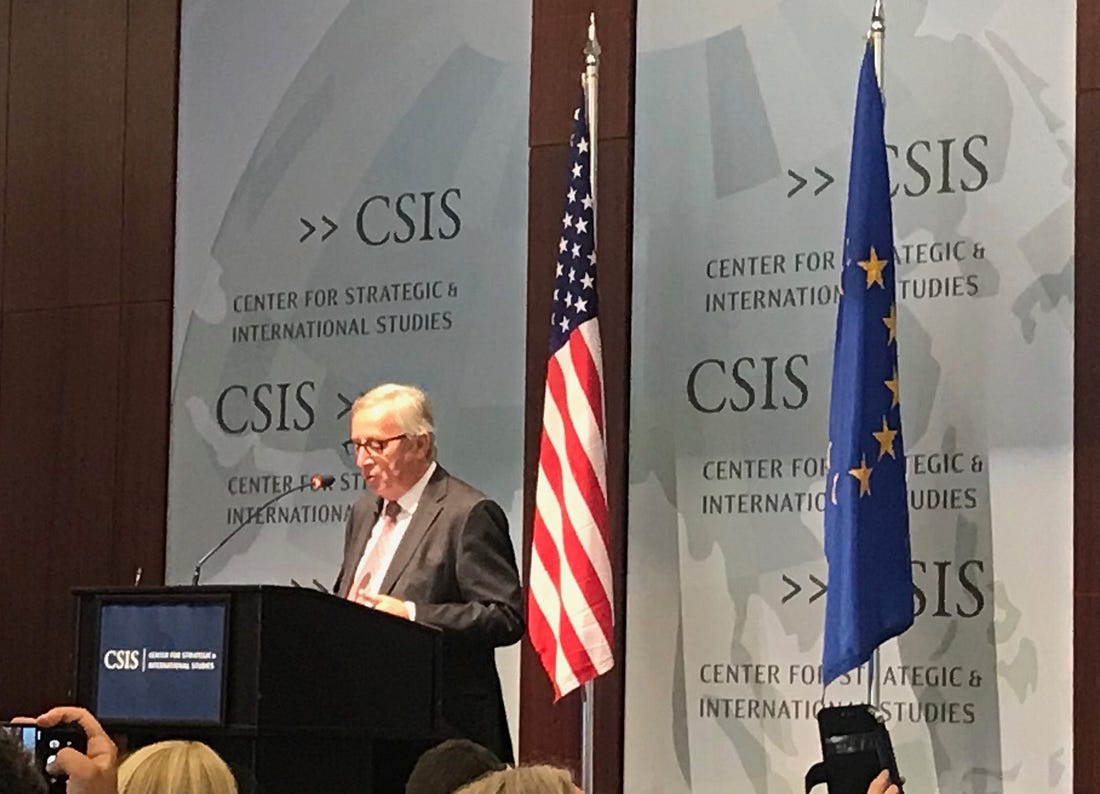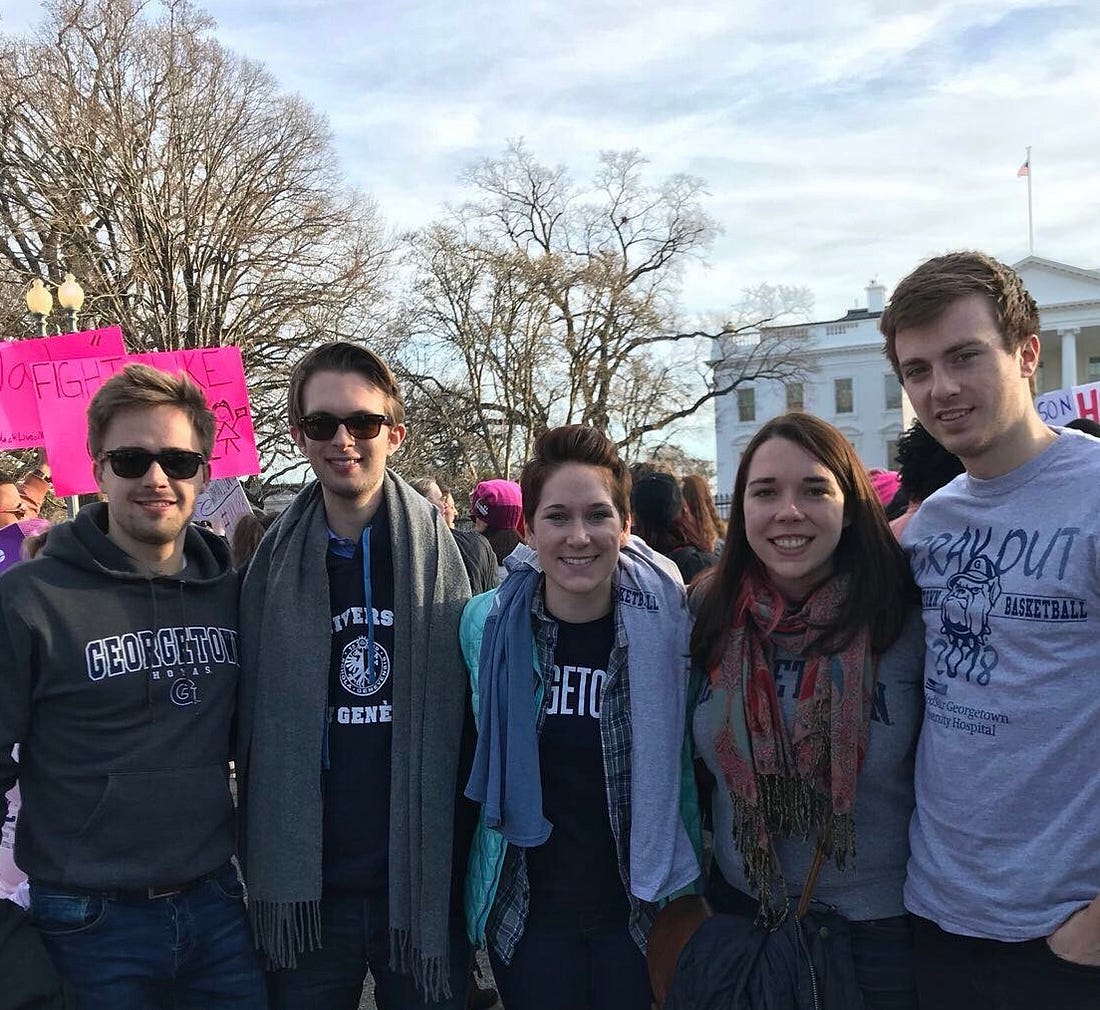By Liam Mullins, MA Candidate in German & European Studies at Georgetown University's School of Foreign Service. Gaeilge, Travel & Transatlantic Affairs, medium.com
InDecember 2016, transatlantic relations were at the forefront of international politics. In June, the United Kingdom had decided to leave the European Union, while in November, anti-establishment candidate, Donald J. Trump, had become president-elect of the United States. I did not foresee either of these scenarios, and it inevitably made me reconsider the state of the transatlantic alliance. How would the alliance deal with policy divergences, a breakdown in internal cohesion, populism, political polarisation? These curiosities led to my decision to apply for a transatlantic-focused master’s programme. Just three months later I received my letter of admission to Georgetown University.
While studying anywhere in the U.S. or Europe has its merits, studying specifically in Washington, D.C., presents a plethora of opportunity. Attending a university located in Washington meant I was within proximity to U.S. foreign policy institutions and think tanks, which not only offer a close-up view of transatlantic affairs, but moreover allow you to experience transatlantic affairs on a daily basis. The Brookings Institution, the Center for Strategic and International Studies (CSIS), and the German Marshall Fund are think tanks that regularly host panel discussions on transatlantic and European affairs that are open to the public. So far, I have attended panel discussions with Leo Varadkar, Simon Coveney (Taoiseach and Minister for Foreign Affairs and Trade of Ireland, respectively), European Commission President Jean-Claude Juncker, Michel Barnier and a host of State Department transatlanticists.
Studying the EU in the U.S. also presented me with the opportunity to undertake a traineeship with the Delegation of the European Union.
I had always dreamed of one day working with the EU, but little did I know that this experience would manifest on the other side of the Atlantic.
At the time of writing, I am finishing up my summer with the Press and Public Diplomacy [JB emphasis] team at the Delegation, who have given me a fantastic insight into diplomacy-in-action. What was undoubtedly the highlight of the experience was assisting with President Juncker’s visit to Washington. Not only was I given the chance to attend the President’s speech at CSIS, but I was assigned a most arduous task — I was the flag guy. Indeed, the EU and U.S. flags that shared the same podium as the EU Commission’s President were set up by yours truly.
Studying, working, and living in the district certainly opened my eyes to the significance of a coherent transatlantic policy. For my first semester at Georgetown, I took a seminar-styled class entitled Transatlantic Public Diplomacy, taught by adjunct Professor and former Deputy Assistant Secretary of State to Hillary Clinton, Spencer Boyer. Professor Boyer offered us a foreign policy practitioner’s insight into the reciprocal importance of transatlantic relations — primarily on how public diplomacy can be utilised to bring us to realise our shared values.
In my mind, all of this and more cements the idea that transatlanticism is of utmost importance today — and we must not lose sight of that fact. A strong Europe is beneficial for the U.S., just as a strong U.S. is beneficial for Europe.
So when I say to people back home in Ireland that I study European studies, I am forever following up with a caveat: “it’s not so much European studies as it is the study of transatlantic affairs.” In fact, I am studying the most important global alliance in the world.



No comments:
Post a Comment